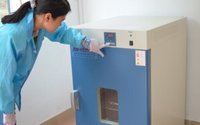Exploring the thermal management and fault analysis of IGBT in three-phase inverter circuits
Date:2024-03-14 11:38:25Views:1
As one of the typical applications of IGBT, three-phase inverter circuit has a wide range of application fields and huge differences. IGBT needs to withstand different speed requirements in different application scenarios, from wind turbines to automotive engines, thus facing continuous to short pulse loads. This working state generates a large amount of heat, which brings huge thermal and mechanical stress to the device. To address this issue, intelligent design, material science, and effective cooling technologies have all become key factors.
1、 Structural function measurement of thermal performance
In order to better understand the thermal characteristics and heat flow path of the device, structural functions can be used to describe it. By measuring the transient temperature changes of the heat flux transmitted from the chip heat source to the outside, the structural function can be obtained. Different levels of thermal resistance and heat capacity properties form equivalent RC networks with time constants τ Reflects the speed of heat transfer in different structures. Through the analysis of structural functions, we can obtain the thermal information of the entire device, which helps us better optimize thermal management strategies.
2、 Fault analysis under power cycle
During the use of IGBT, power cycling is a common occurrence of faults. When the device malfunctions, the collector emitter voltage (Vce) will increase. This type of malfunction may be caused by an increase in resistance due to a broken bonding wire, or by an increase in temperature due to an increase in device thermal resistance. By using the analysis of structural functions, we can determine whether the thermal resistance of the heat dissipation path has increased, thereby determining whether it is a problem with the bonding wire or the packaging structure itself. By applying structural functions, we can accurately diagnose the cause of faults and take appropriate repair measures to avoid system failure.
_20240314113640_171.jpg)
3、 Application of Materials Science
In order to cope with the high temperature and high-power working environment of IGBT in three-phase inverter circuits, material science plays an important role. By selecting suitable materials and packaging techniques, the thermal conductivity and heat dissipation performance of the device can be improved. For example, using silicone or graphite materials with high thermal conductivity as heat dissipation pads can effectively transfer heat to the radiator and improve heat dissipation efficiency. In addition, optimizing the thermal conductivity of packaging materials can reduce thermal resistance and improve overall thermal management effectiveness. The application of materials science provides important support for the stable operation of IGBT.
4、 Effective cooling technology
Cooling technology plays a crucial role in effectively reducing the operating temperature of IGBT. Common cooling methods include air cooling, water cooling, and liquid cooling. Air cooling is the most common way of conducting and dissipating heat through radiators and fans. Water cooling uses water circulation to absorb and carry away heat, which can achieve higher heat dissipation efficiency. Liquid cooling, on the other hand, utilizes thermal conductive materials to transfer heat into the liquid and dissipate heat through an external cooling system. Choosing the appropriate cooling technology and combining it with practical application scenarios can effectively control the temperature of IGBT, improve its working stability and lifespan.
The thermal management and fault analysis of IGBT are crucial for the reliability of the system in three-phase inverter circuits. By measuring thermal performance through structural functions, applying material science, and effective cooling techniques, we can improve the efficiency of heat flow paths, reduce the operating temperature of devices, and accurately diagnose and repair possible faults. Through continuous research and innovation, we can achieve more efficient and reliable operation of three-phase inverter circuits in different fields of application, promoting the development and progress of industries and transportation.




 Weixin Service
Weixin Service

 DouYin
DouYin
 KuaiShou
KuaiShou




















